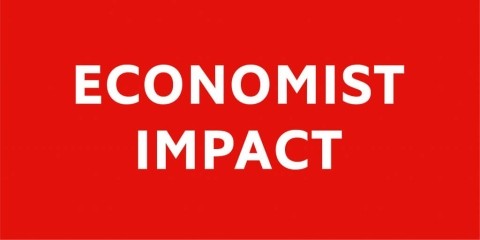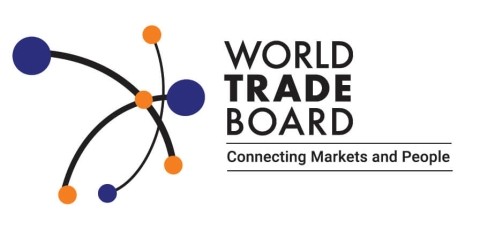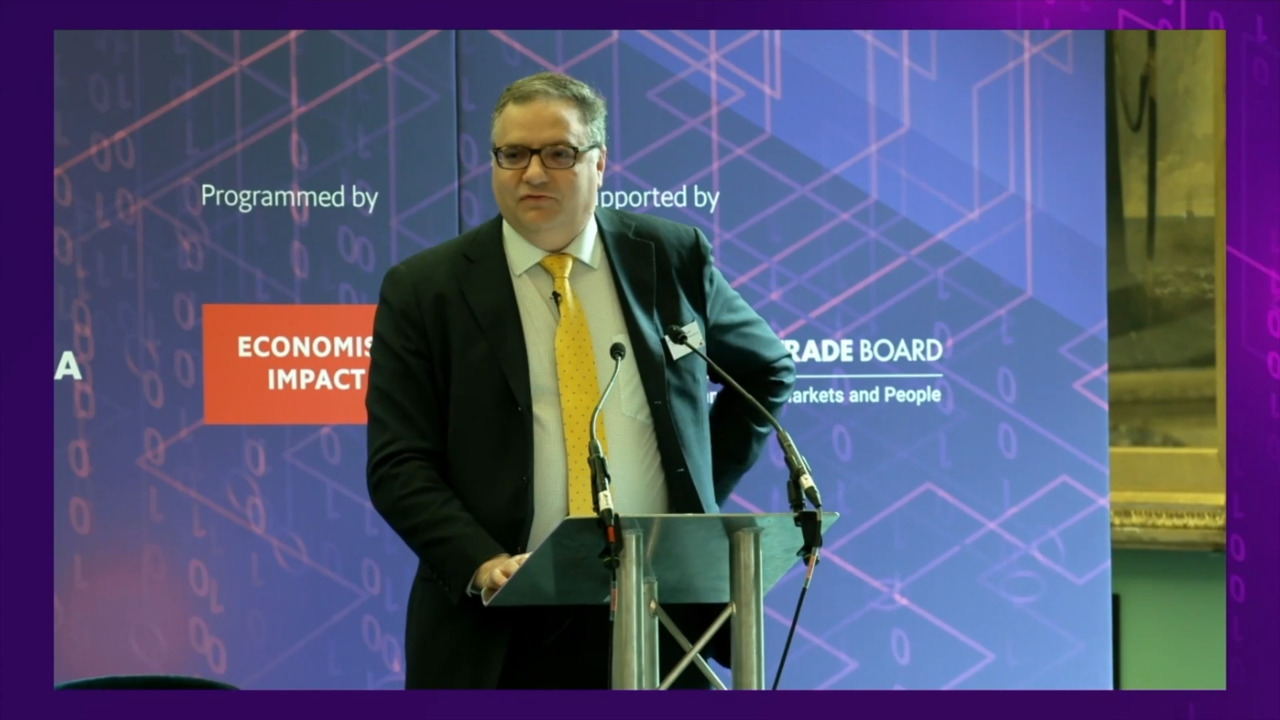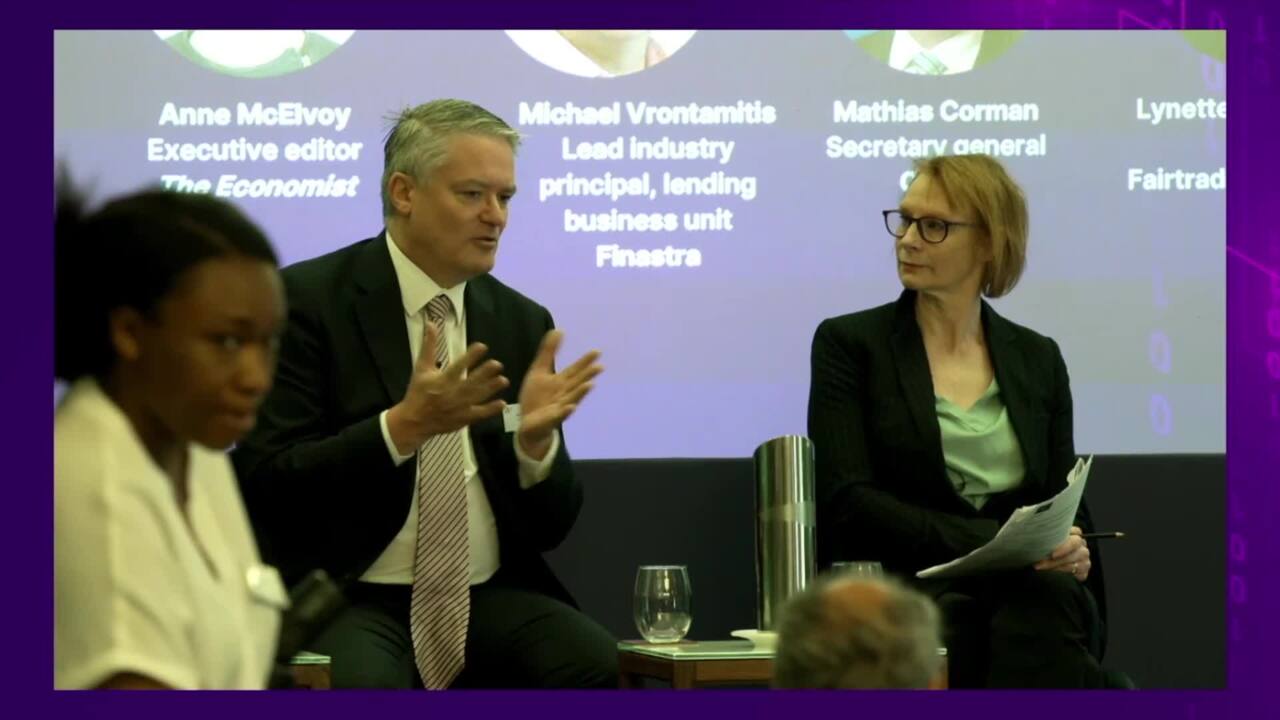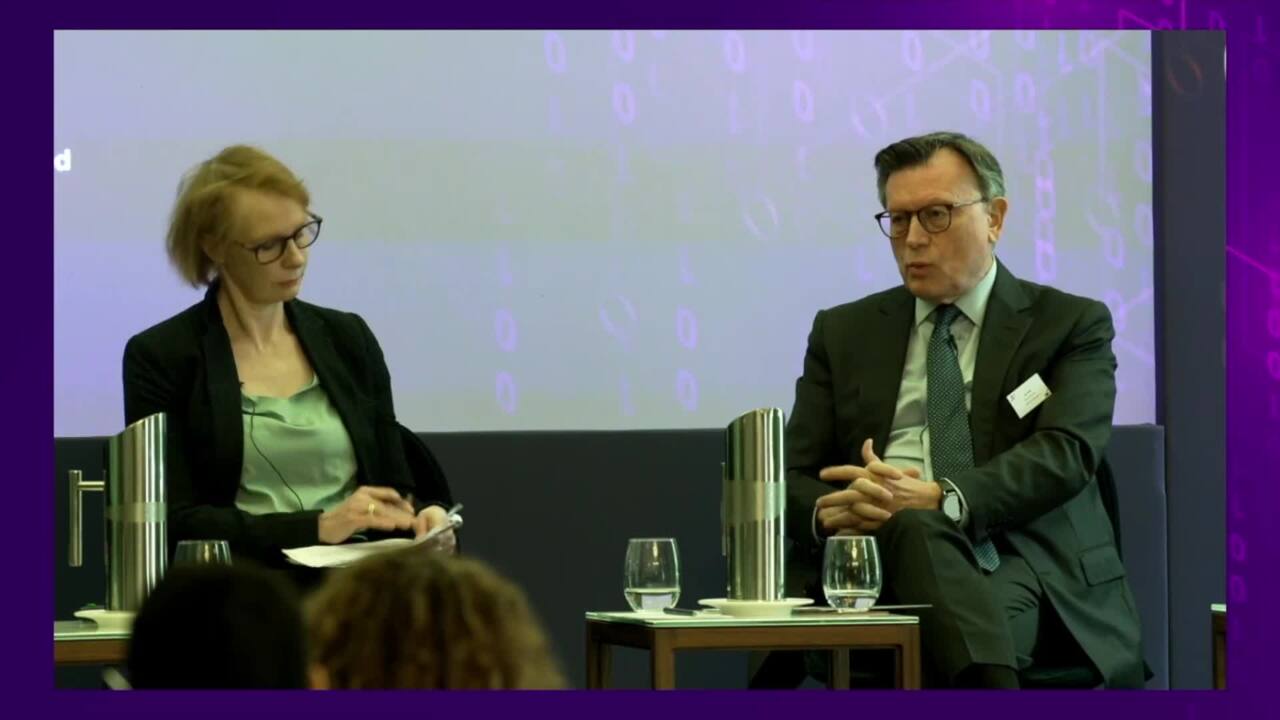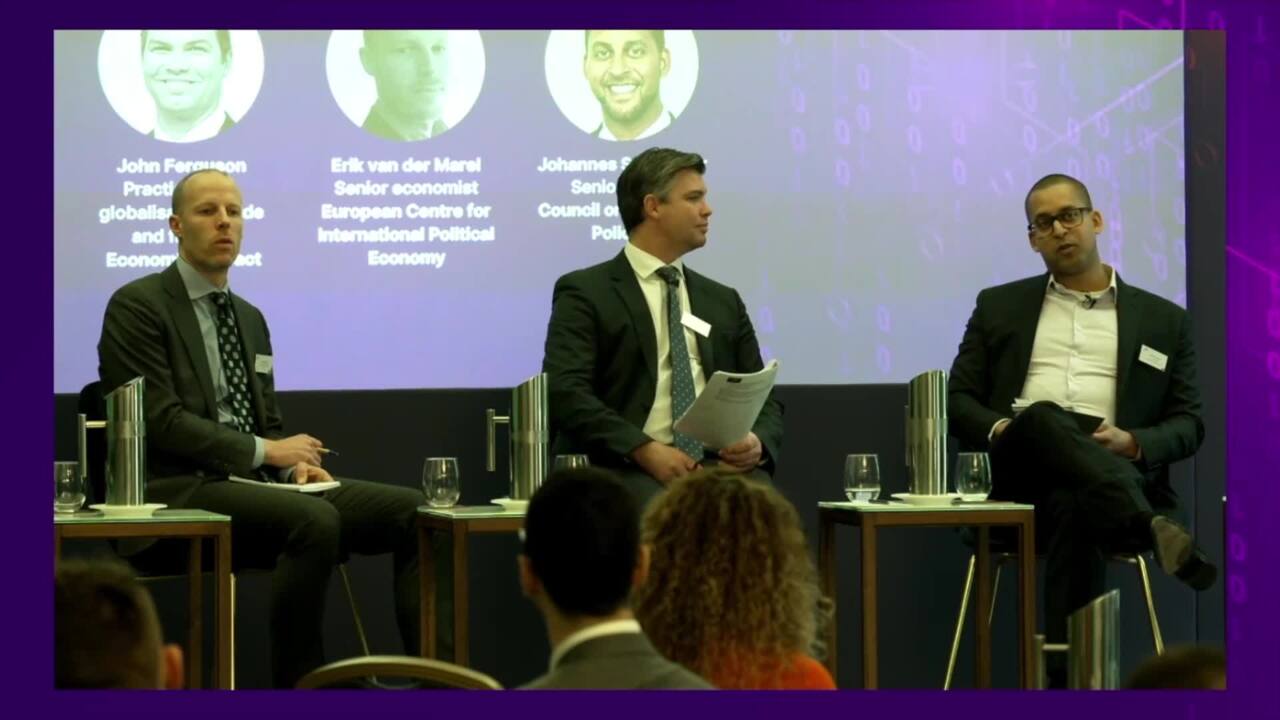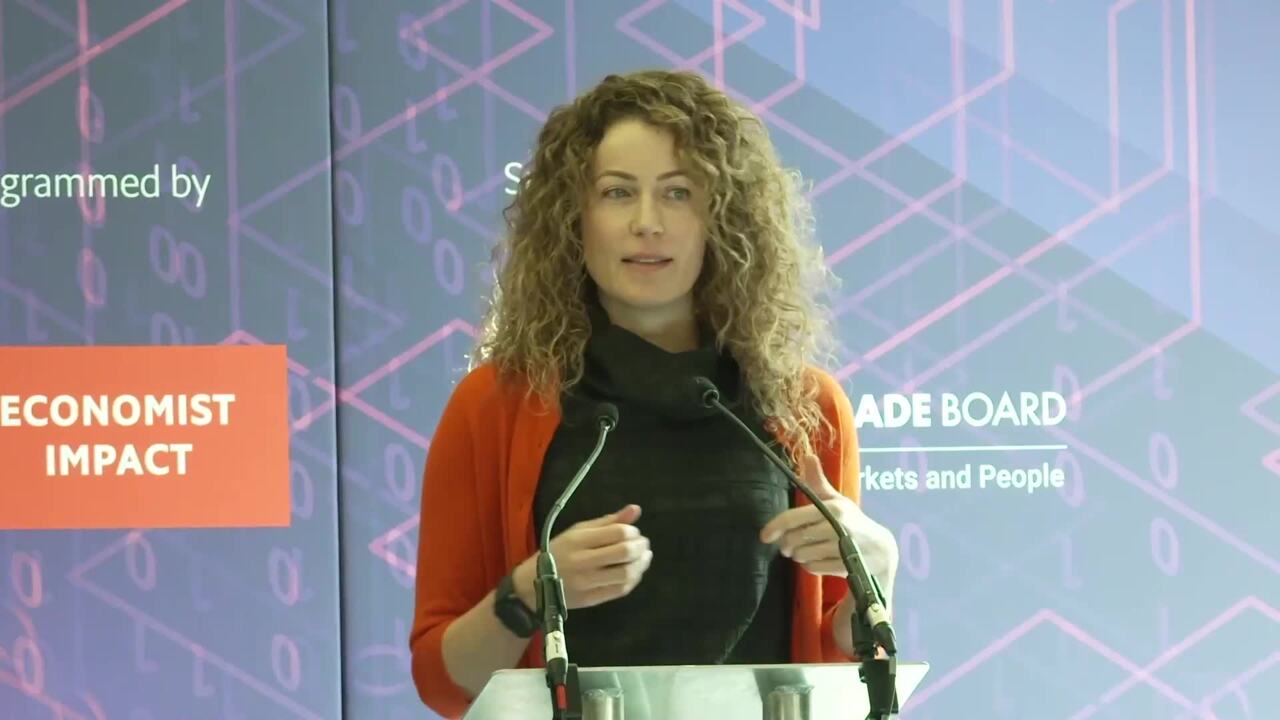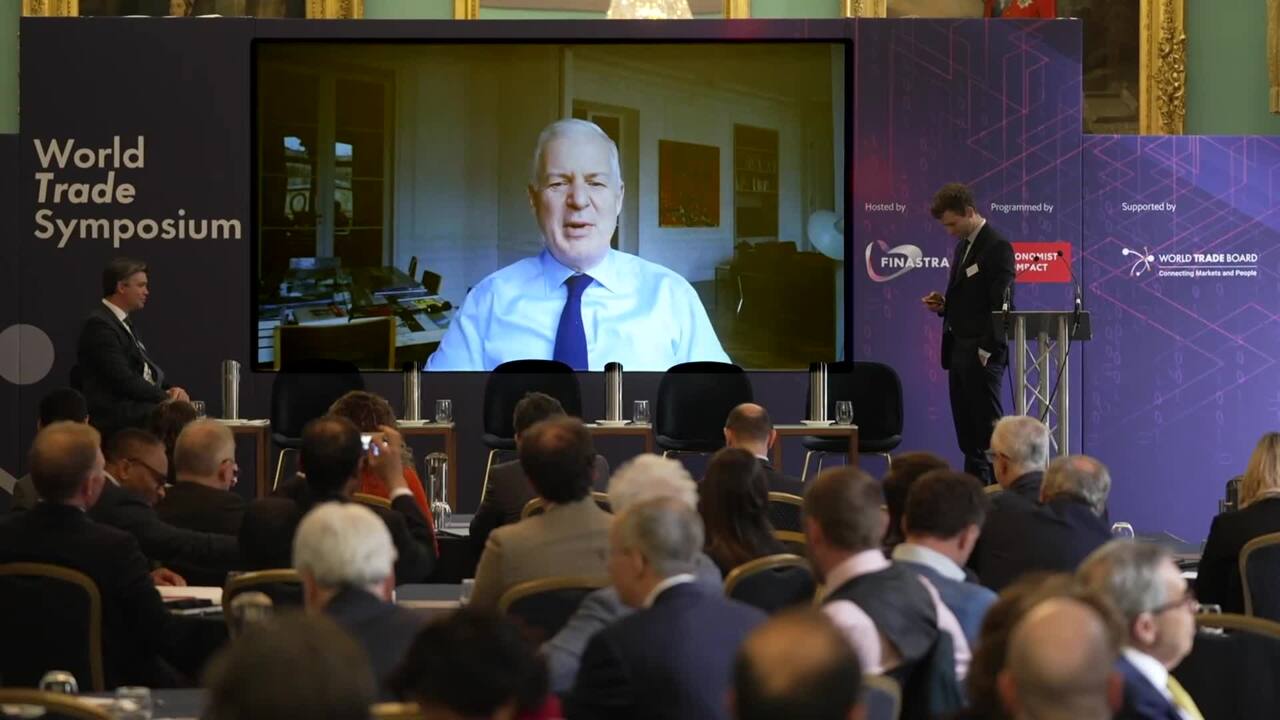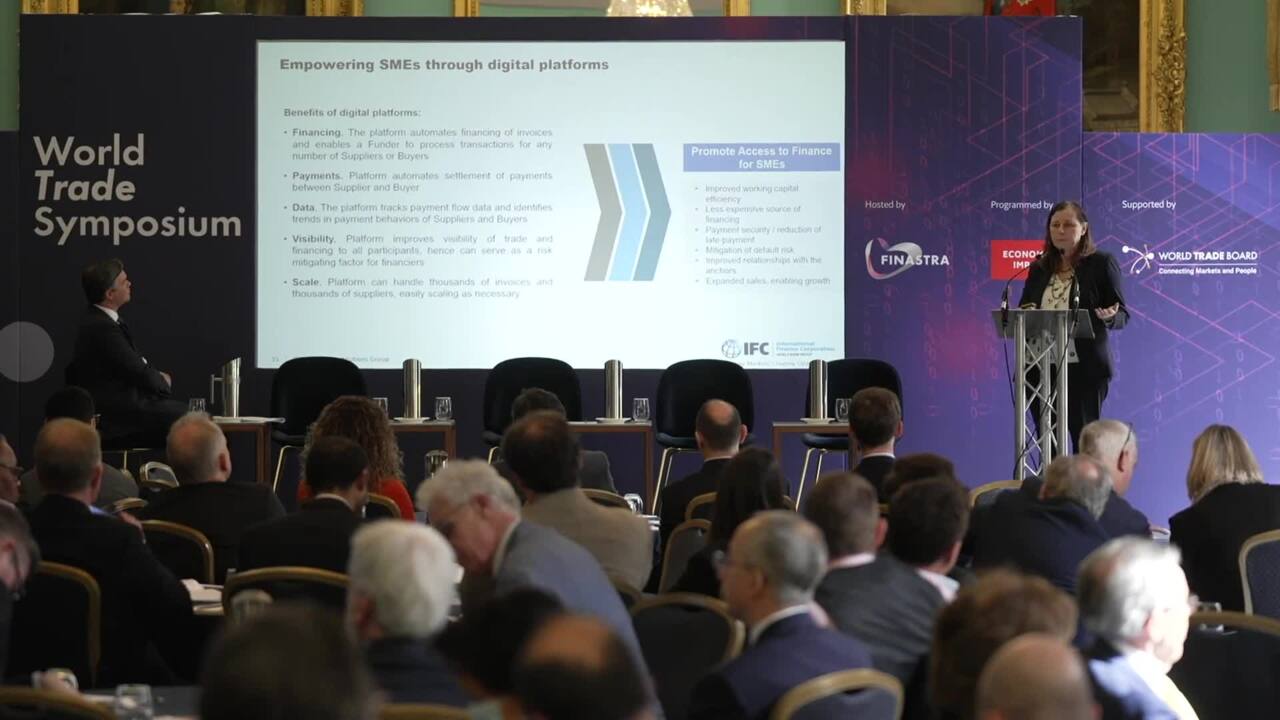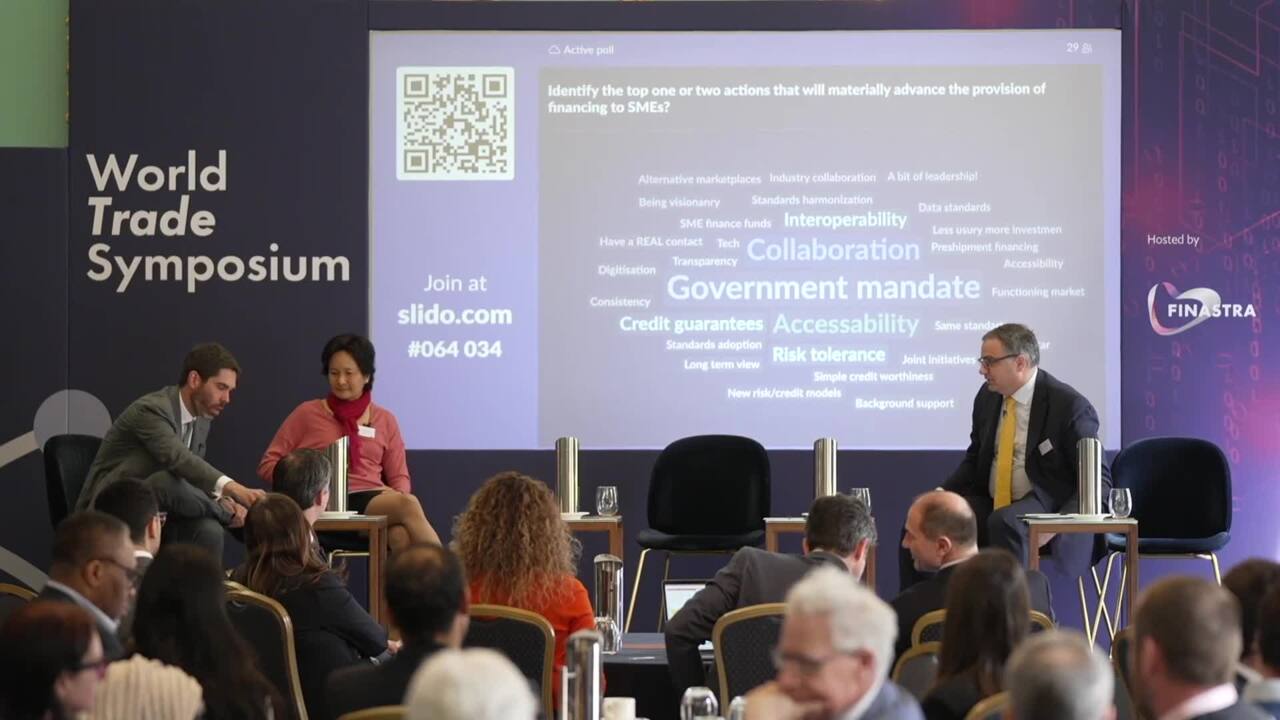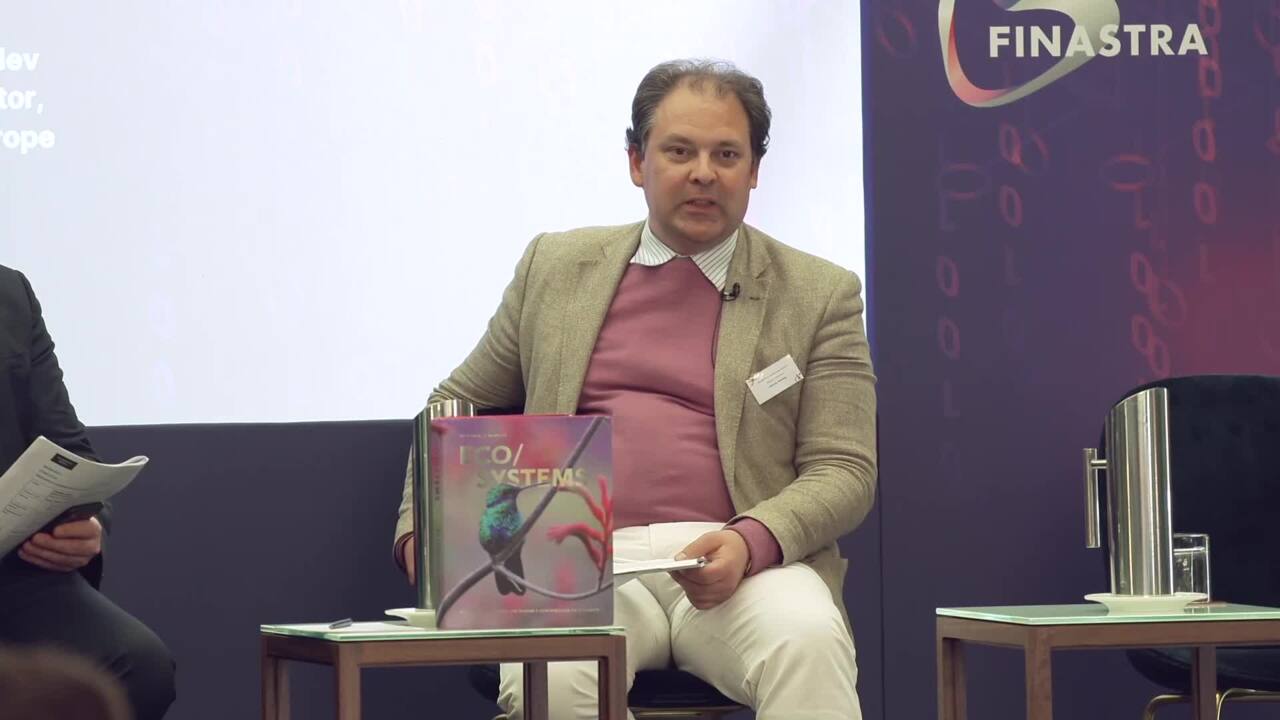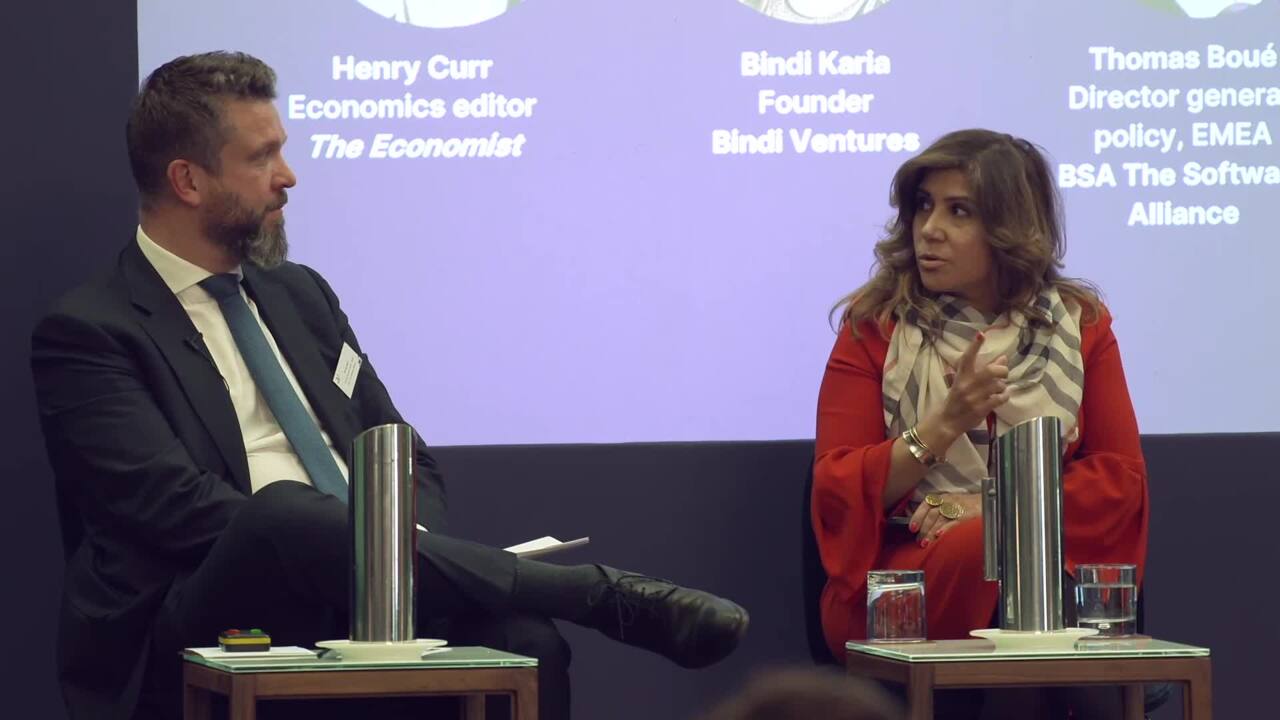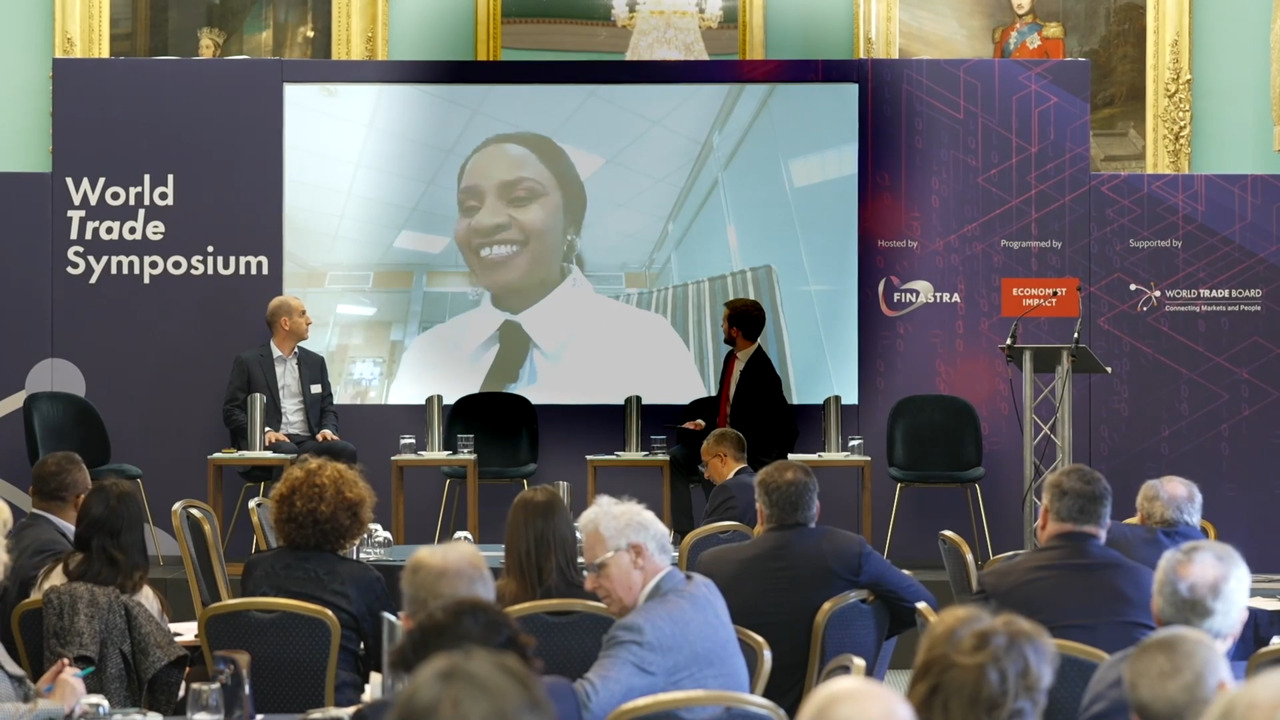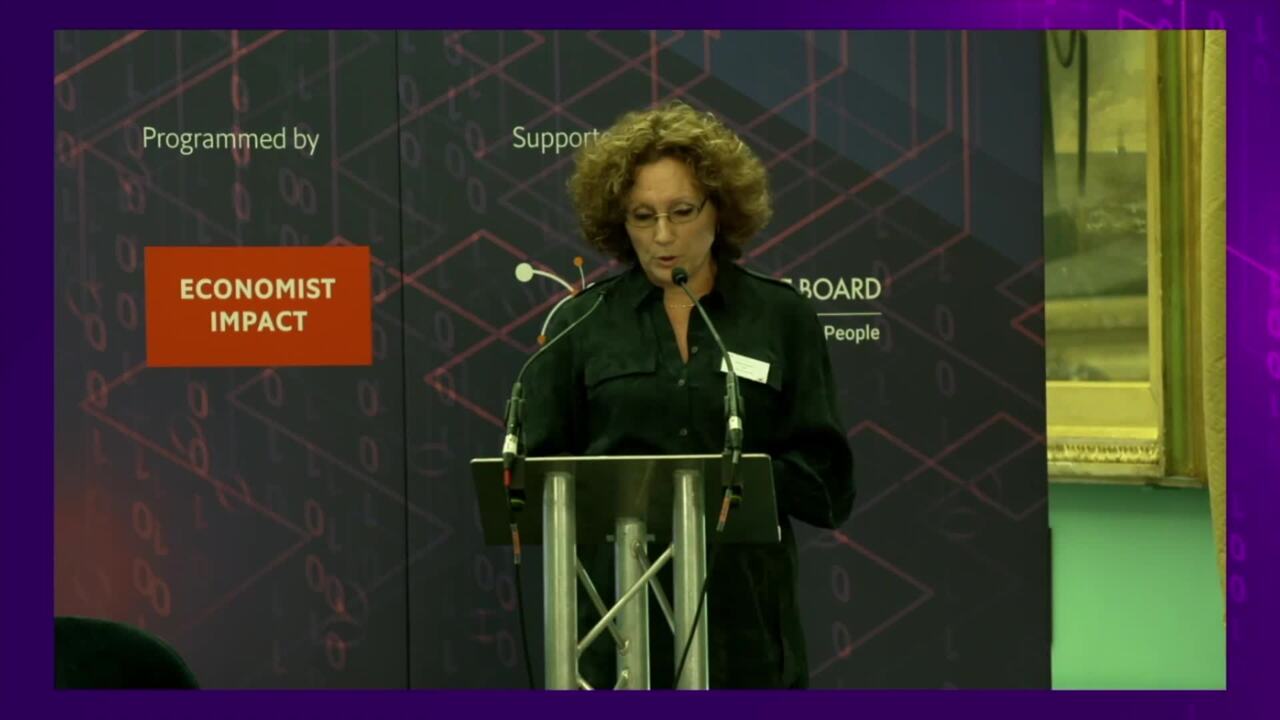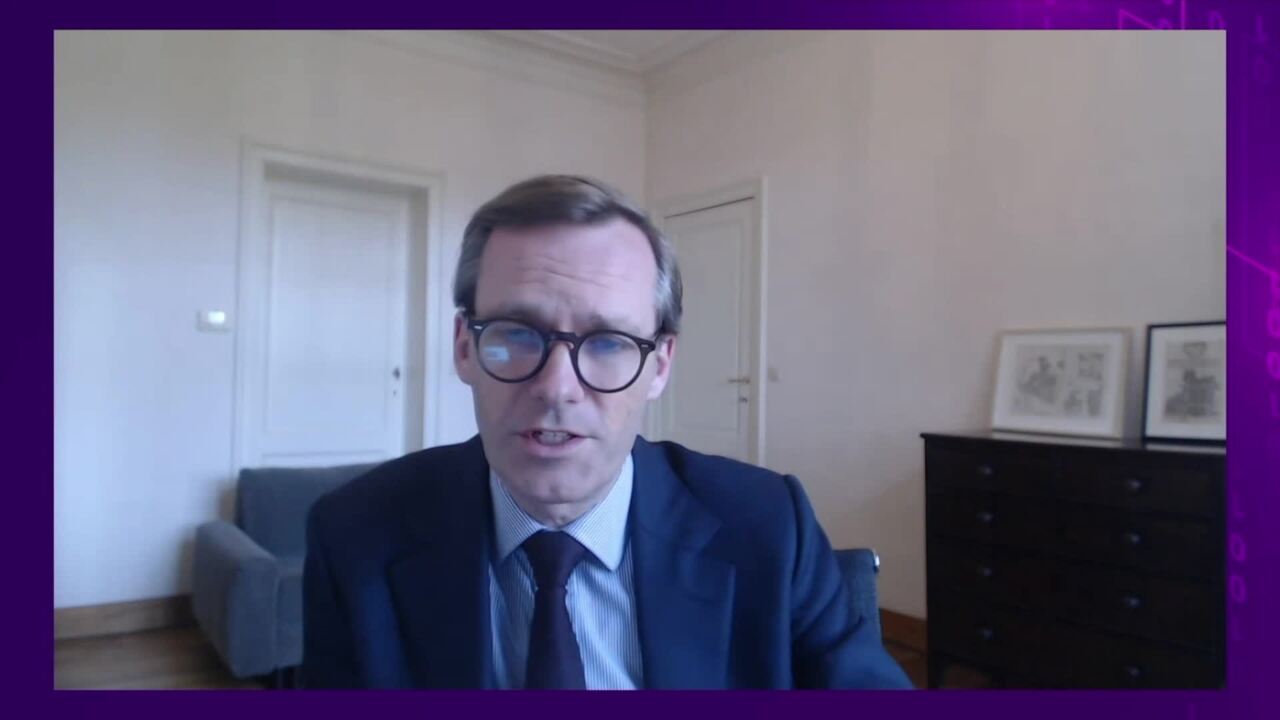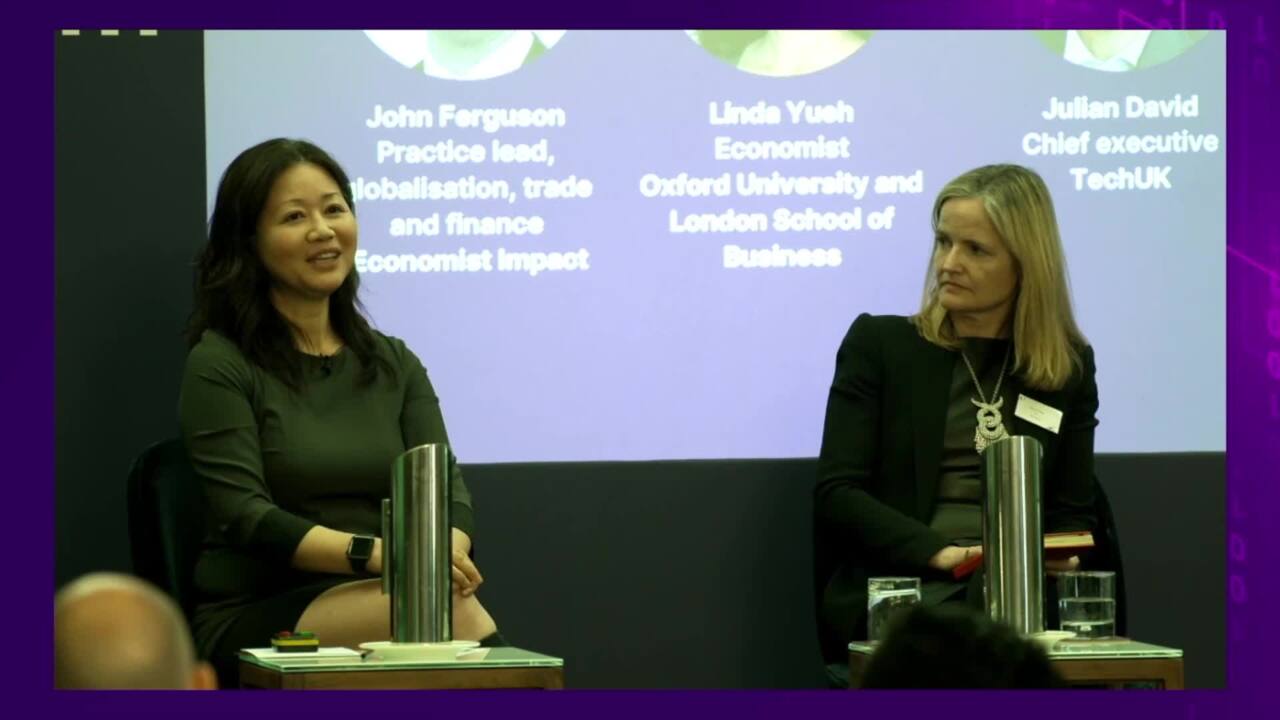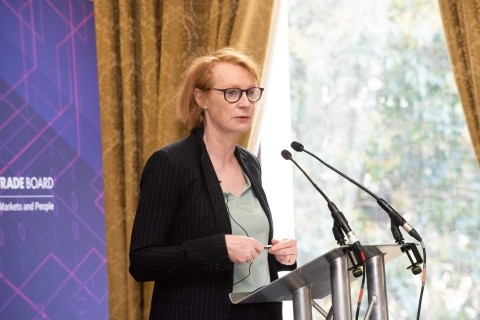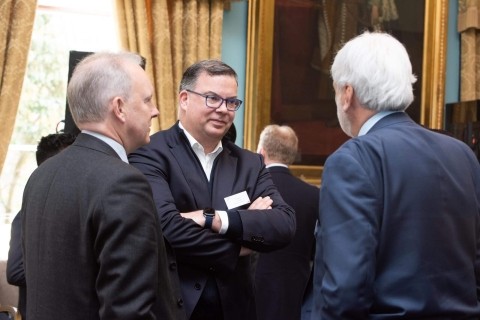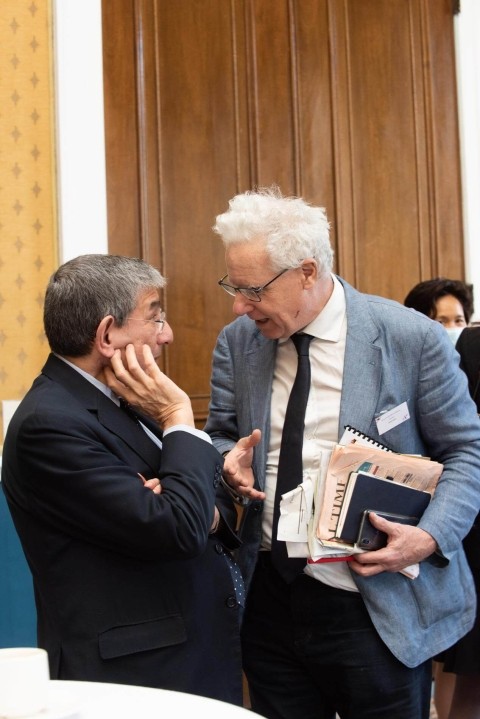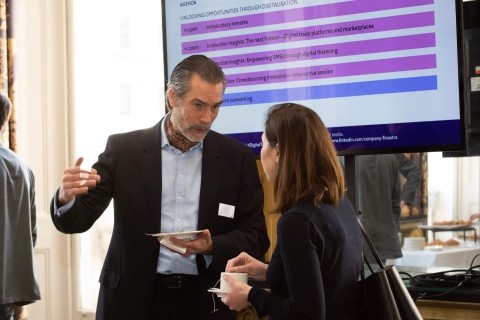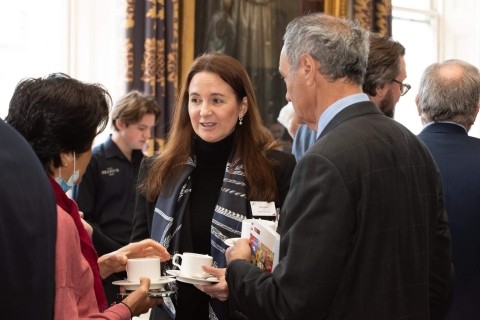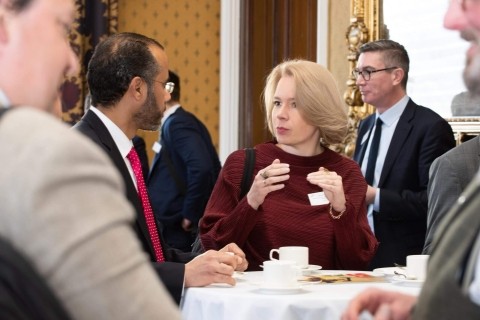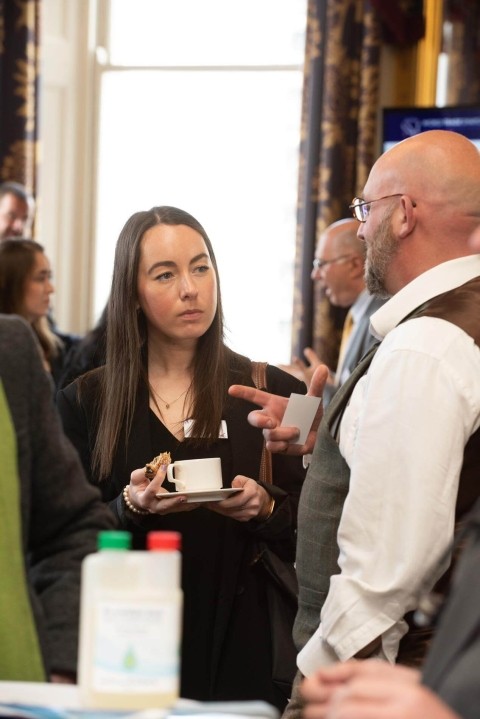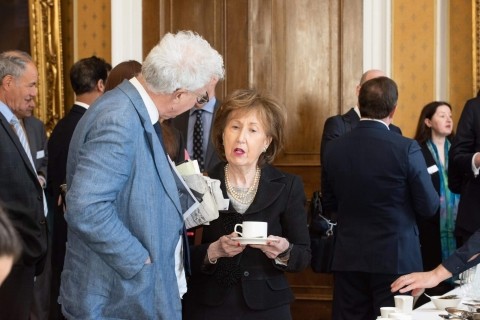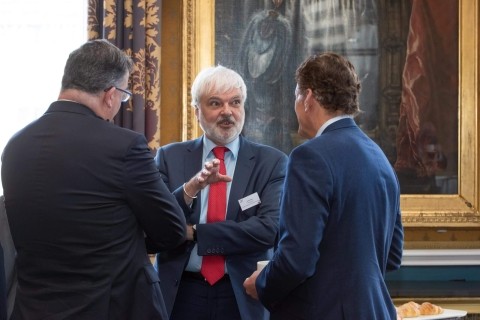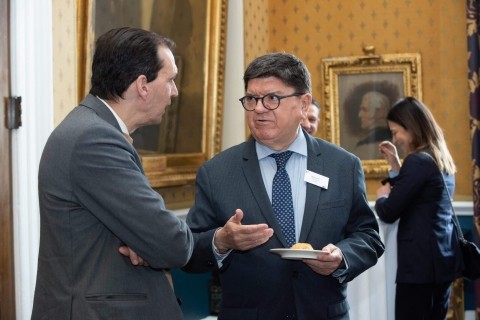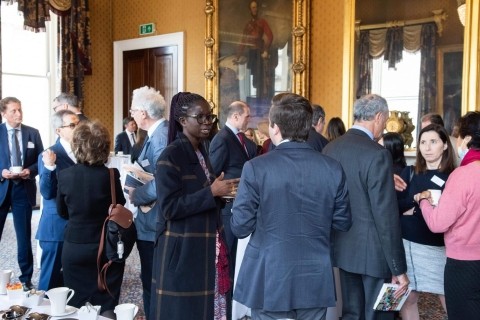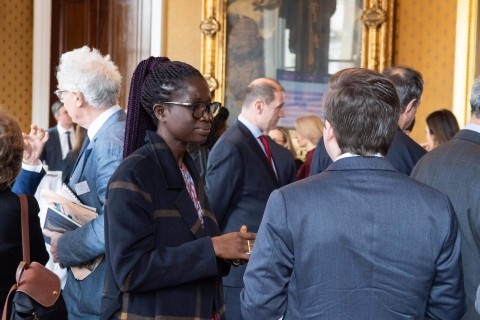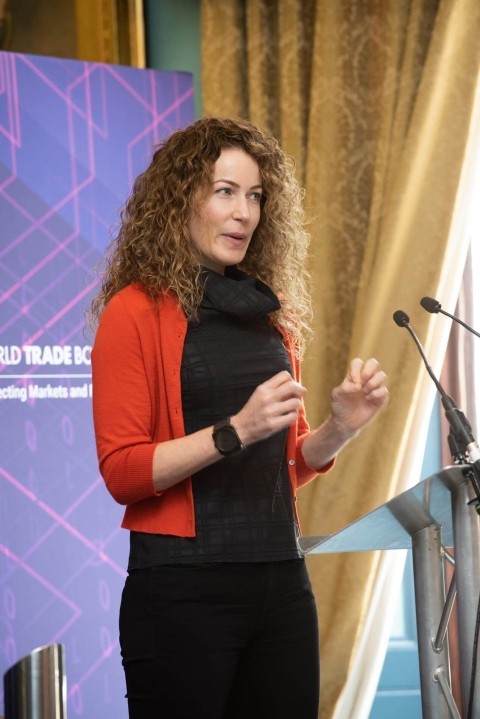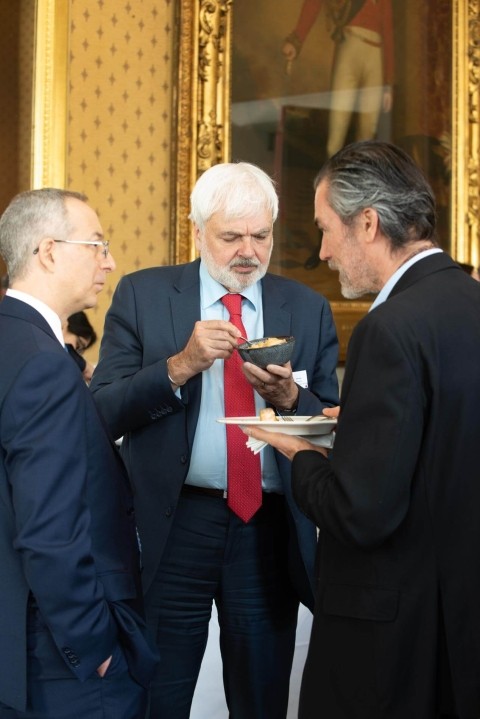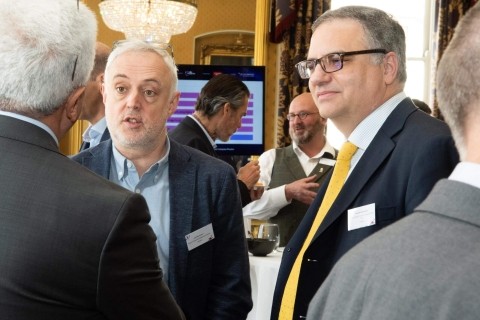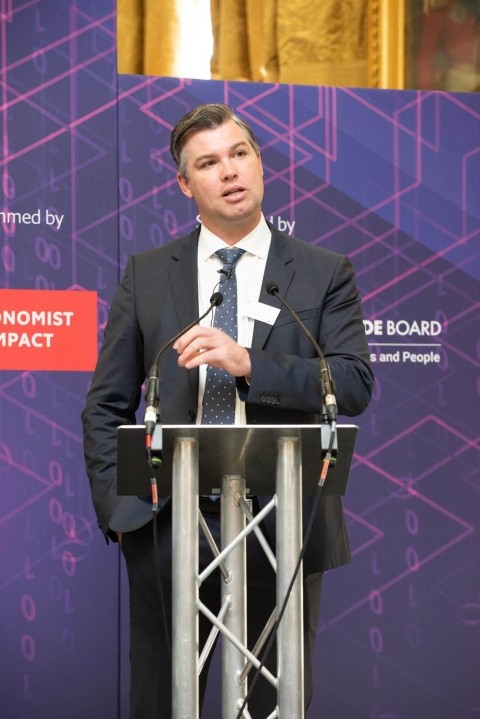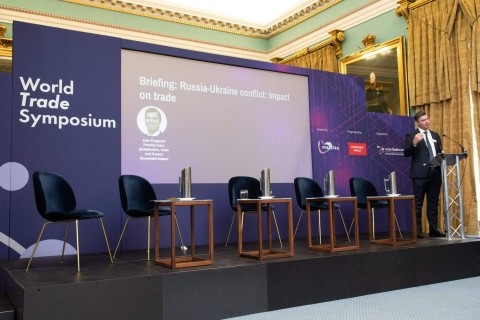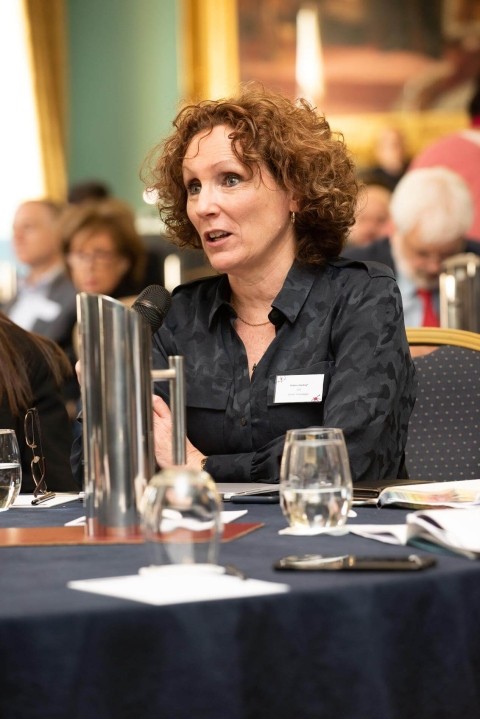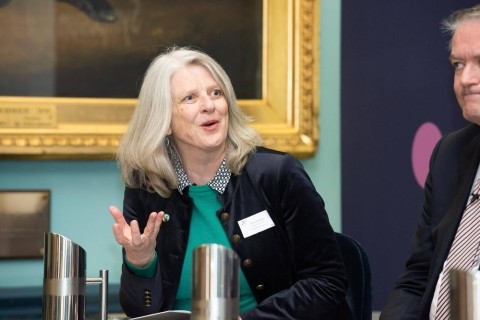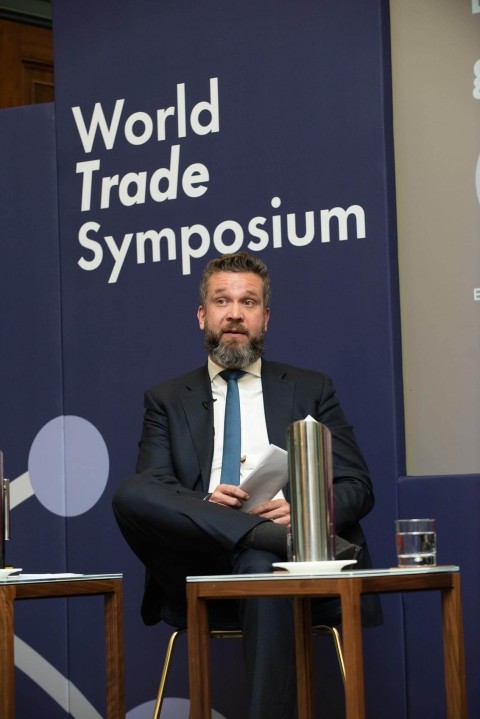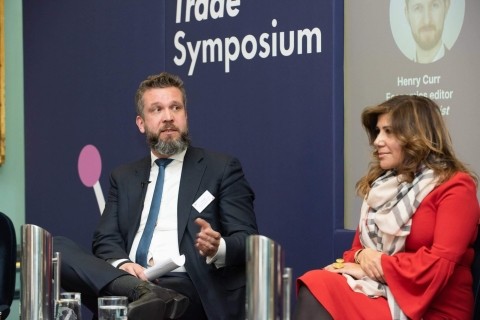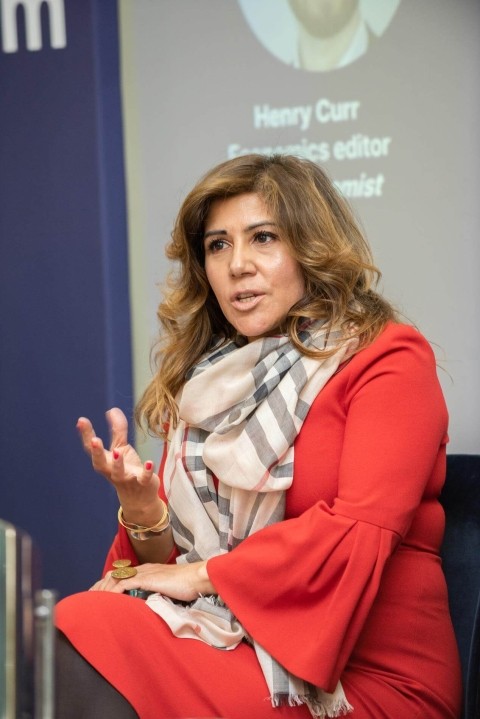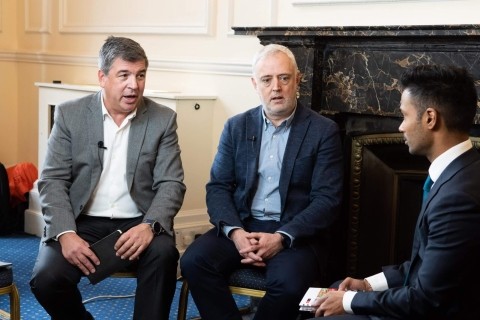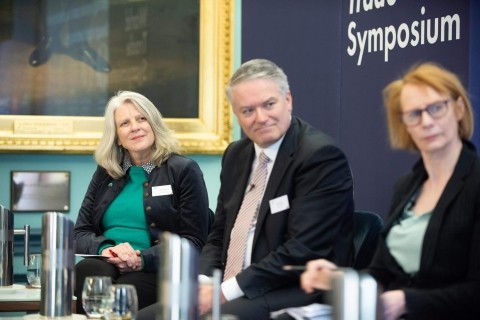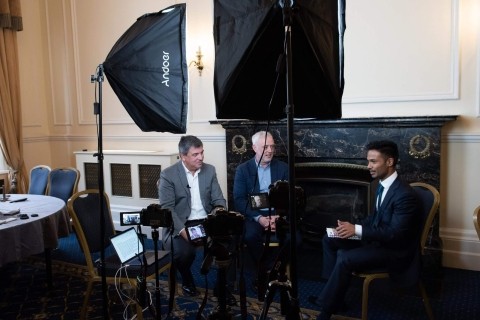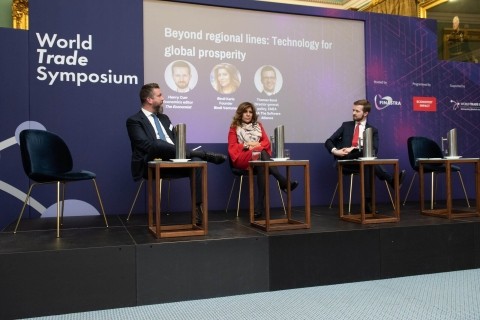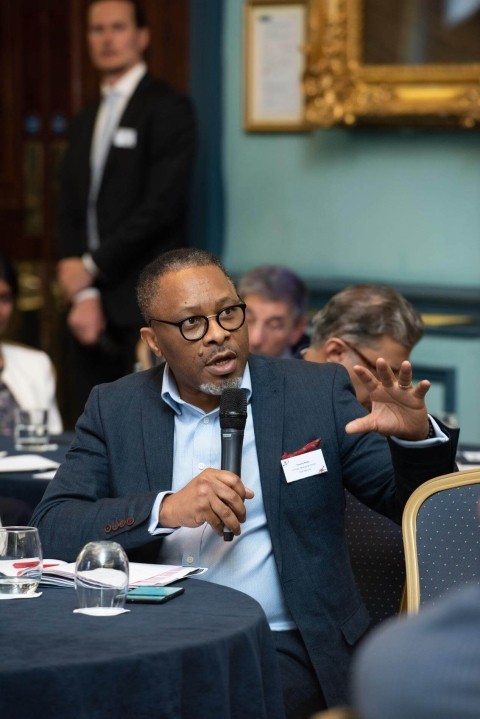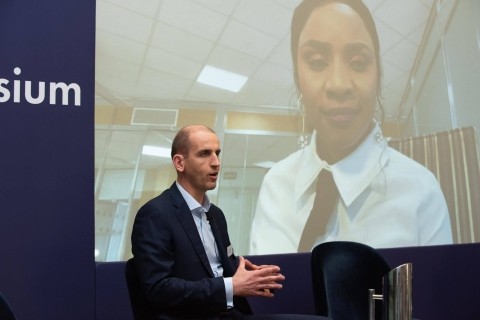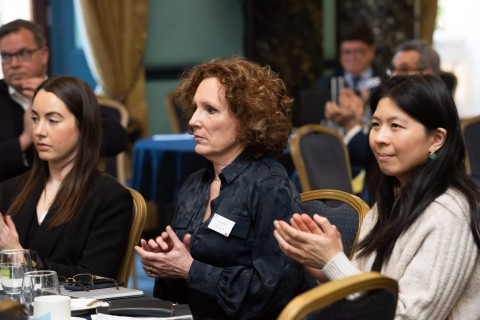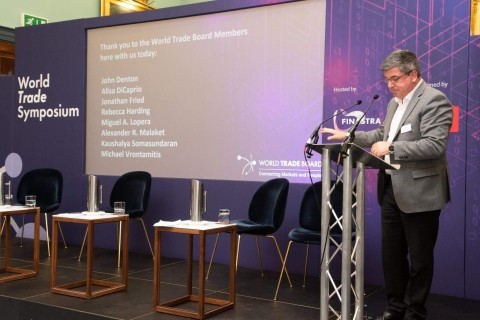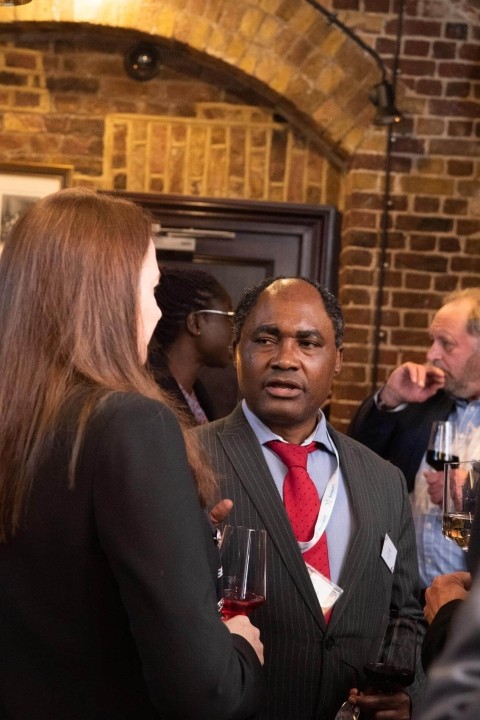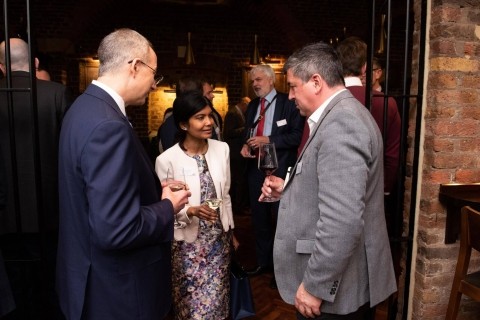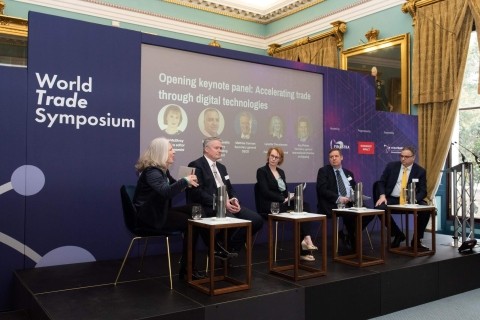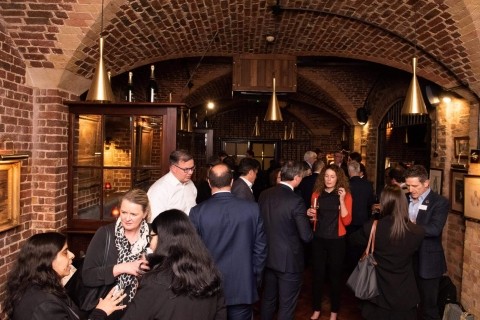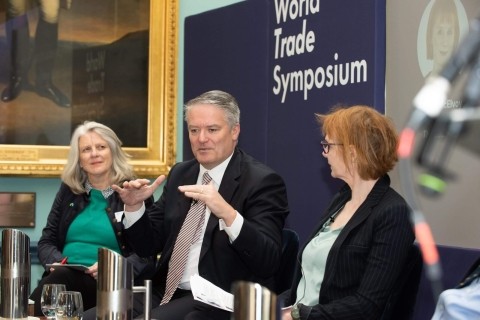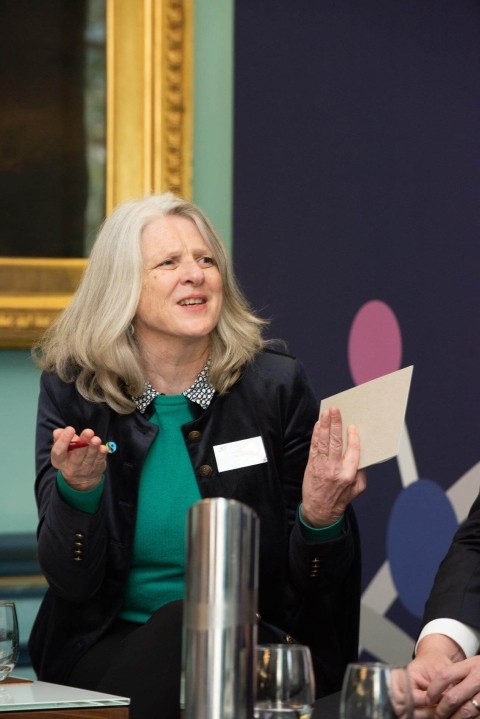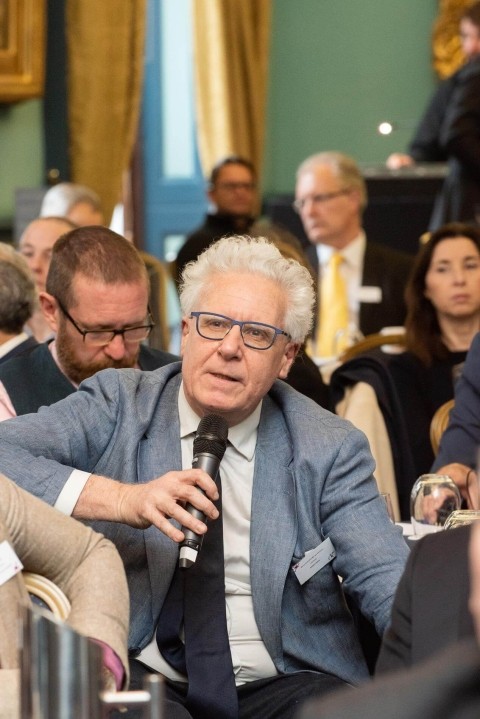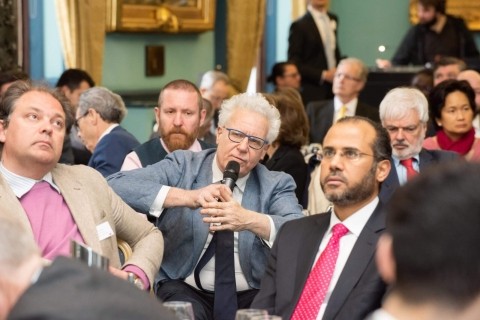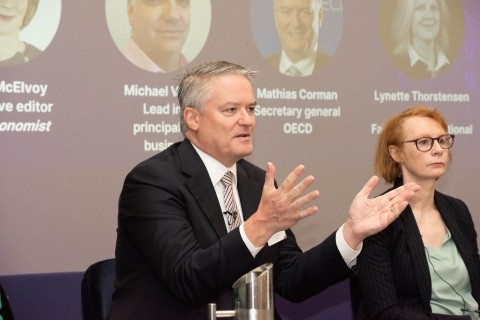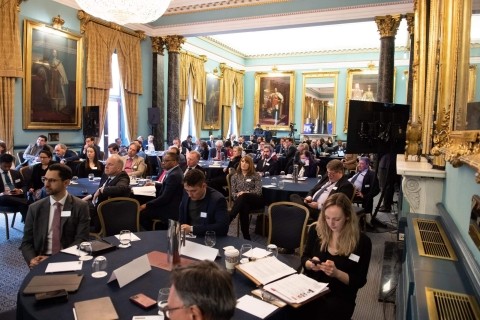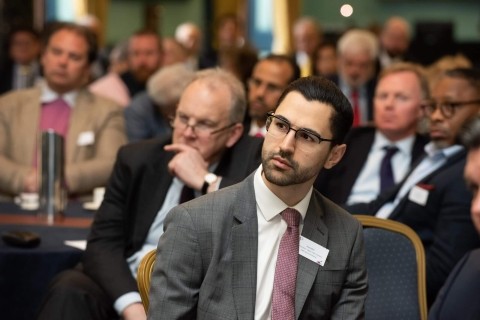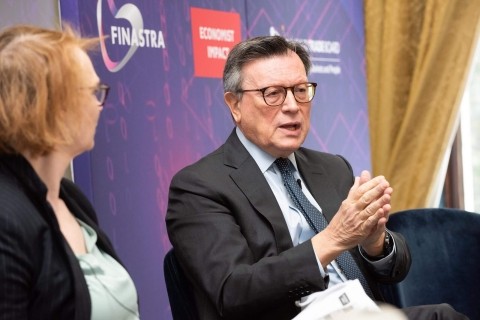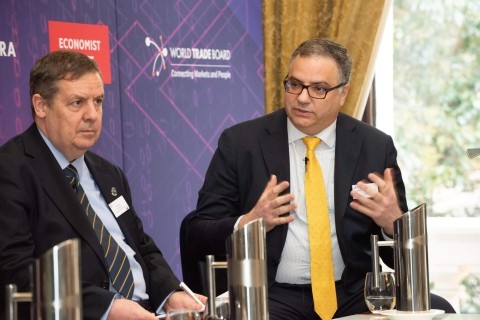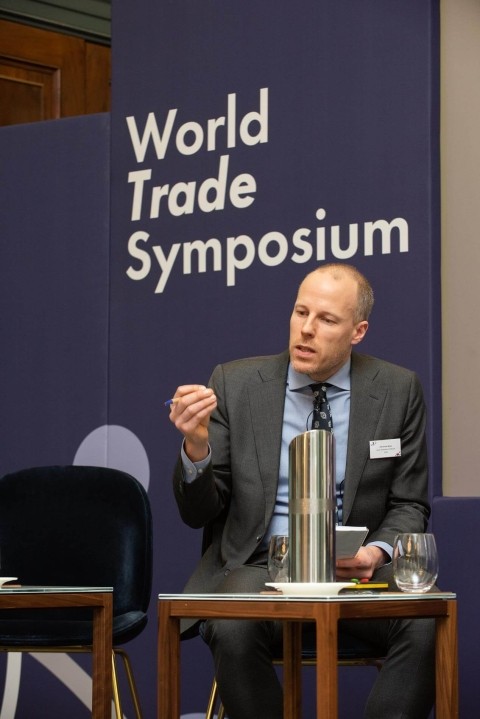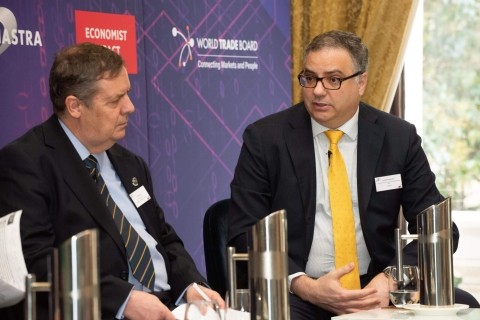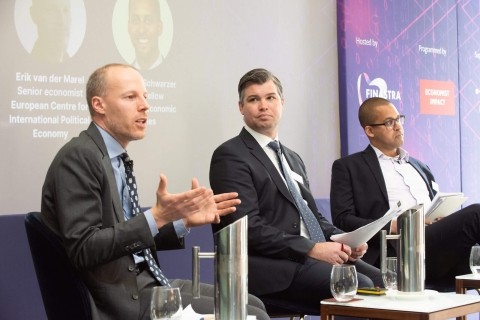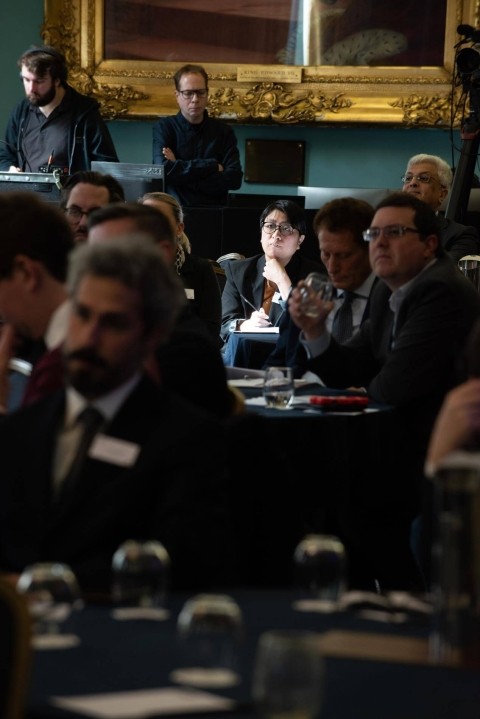
World Trade Symposium 2022
Digital trade: Charting the way forward
The “tech-tonic” opportunity
Summary
Digital trade: Charting the way forward -
The “tech-tonic” opportunity
- Advancement of trade using digital technology
- The development of marketplaces and platforms in the current digital environment
- Moving towards sustainability and inclusion
- Towards economic growth and trade prosperity
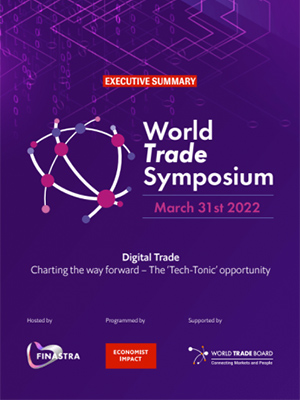
Agenda
The past 18 months have seen the rules on global trade rewritten. As the world emerges from the covid-19 pandemic, the Ukraine-Russia crisis threatens the global trade order. The war could derail the economic recovery of the past year and create further divisions between countries. In these unprecedented times, governments, businesses and civil society need to work together towards a common cause for trade to prosper.
Using technology to build efficiency and resilience is one significant means to pave the way to a brighter future. The profound digital transformation that was already underway before the pandemic has accelerated, slashing costs and reforging supply chains. Innovative shippers, banks, trading blocs and Fintechs are blazing a trail. All governments, businesses and trade practitioners now face the urgent task of understanding trends in technology and the practical and policy challenges involved in grasping the opportunity of digital trade.
Alongside this, policymakers and non-governmental organisations forecast that digital technologies and standards will open trade to millions more small and micro-enterprises across the world, cementing a new path to global prosperity. Digital tracking and provenance solutions could also boost sustainability and help reduce carbon emissions.
These “tech-tonic” shifts are a significant opportunity for all stakeholders in trade, but many obstacles still need to be overcome. The World Trade Symposium 2022 will bring together top executives and leading global policymakers for a day of rigorous discussion and debate on these critical issues. The event will reassess the new “trade lines” created by the pandemic, examine the impact of the Ukraine-Russia war on global trade flows, explore the scope and impact of digital trade technologies and evaluate the opportunities and challenges ahead.
The audience will hear from innovators, businesses and policymakers, learn about practical solutions, and build networks with global leaders and innovators that will help bring the benefits of digitalisation into their own organisation. Now in its seventh year, the World Trade Symposium promises to deliver unmissable insights on what matters most in global trade today.
Thursday 31st March
Opening remarks

Opening remarks from The Economist
The new world order: Global outlook and trade trends

Pathways to digital prosperity
Opening keynote panel: Accelerating trade through digital technologies
Digital technologies, policies and standards can reshape trade and chart a path to prosperity for businesses, regions and countries. Find out how to master digital trade in 2022 and beyond by identifying the strategies that will do most to propel trade. How can digital trade prosper in the wake of the Ukraine-Russia crisis? What effect will the war have on global trade? Will it threaten the liberal order in Europe and, if so, what can be done to restore it?




Moderator

Fireside chat: Trade in an age of change
Global trade is changing rapidly. As new technologies are being adopted, new blocs, alliances and disputes are forging a fresh trading paradigm amid the pandemic. In this session you will hear how these forces and megatrends will shape the future of global trade.

Moderator

Oxford-style debate: This house believes that digitalisation will benefit all equally and fairly
Everybody hopes digitalisation will benefit everyone, but what are its unintended consequences and implications? Is the reality truly fair?
Host

For the motion

Against the motion

Break and networking session
Unlocking opportunities through digitalisation
Introductory remarks

Innovation insights: The next frontier—Digital trade platforms and marketplaces
By bringing together players across the trade value chain, digital trade platforms and marketplaces will boost efficiency and shorten time to market. But questions about interoperability, regulation and standardisation remain. Learn about the opportunities in digital trade platforms and marketplaces and how you can make the most out of them.


Innovation insights: Empowering SMEs through digital financing
Small and medium-sized enterprises (SMEs) form the backbone of the global economy. In this session you will learn how fintechs, banks and others are enabling SMEs to finance their trade more easily, keeping global trade moving.

Digitalisation: Crowdsourcing innovation—interactive session
This session will unlock the creativity and knowledge of the audience and panellists through an interactive session building on insights from earlier in the day. The audience will have the chance to ask questions and share their experiences so that everyone can uncover the potential of digitalisation.
Lunch and networking
Building outcomes for good
Russia-Ukraine conflict: Impact on trade
The Russia-Ukraine war would have a significant impact on trade flows within Europe and the rest of the world. Inflation due to volatile markets is expected to rise and disrupt markets. In this briefing, the audience will learn about the effect of the conflict on supply chains, consumer prices, and inflation.

Introductory remarks
Opportunities for a sustainable future using digital technologies
Digital solutions, including those related to tracking and provenance, promise to boost sustainability and reduce carbon emissions across supply chains. But are these solutions delivering yet? In this session you will hear about ways to pivot profitably towards sustainable outcomes using digital technologies, along with the opportunities for solution providers and the key advantages for early adopters.


Moderator

Beyond regional lines: Technology for global prosperity


Moderator

Bridging the trade finance gap
Achieving optimal trade outcomes will require innovative ways to allow firms that are normally excluded to access finance. In this session you will learn how digital financing and global standards can bridge the trade finance gap, gain a deeper understanding of the progress that has already been made and identify the next steps to be taken in accelerating economic growth.


Moderator

Break
Reviving trade: The path ahead
Introductory remarks

Keynote interview: The digital trade imperative
As the world recovers from the covid-19 crisis, economic growth, inclusion and sustainability have become crucial for both developed countries and emerging markets. To achieve these imperatives businesses will need to deploy digital tech and governments to provide clear policies and support. How can humanity follow the right course?
Interviewer

Interviewee

Keynote panel: Redefining trade lines—Setting the global agenda for a digital future
What should be the global agenda for the digital future, and what can you do on a personal level and within your organisation to make that future more inclusive and sustainable? How does the Ukraine-Russia crisis affect the digital future agenda? Will it reshape that agenda in Europe? What effect will it have on issues like digital sovereignty, data localisation and cyber-security? Will it change the approach of governments and businesses towards digital technologies? After a day of debate, discussion and interaction, we invite everyone to share the actions they plan to take personally and organisationally to transform digital trade and carve out a path to global prosperity.



Moderator

Chair’s closing remarks

Finastra’s closing remarks

Drinks reception begins
Speakers

Simon Paris

John W.H. Denton AO
Footage
Opening Remarks
Keynote Panel
Accelerating Trade & Fireside chat with José Viñals
Innovation Insights
The next frontier, SMEs, Crowdsourcing
Effects of Ukraine
Tech for Global Prosperity, Bridging the Trade Finance Gap
Interview with Graham Floater
Redefining Trade Lines, Closing Remarks
Venue & Hotels
116 Pall Mall
116 Pall Mall is an iconic landmark of London’s Georgian heritage located minutes from Trafalgar Square and Piccadilly Circus.This magnificently restored Grade 1-listed building is one of the most popular business venues in the capital, with thousands of IoD members visiting the premises weekly to work, meet and network. The John Nash-designed premises are also available for corporate and private hire. They make a spectacular setting for a range of occasions.

How to get there
Institute of Directors:
116 Pall Mall,
St. James’s, London SW1Y 5ED
Closest tube station:
Charing Cross station (7 min walk) – Northern & Bakerloo tube line Piccadilly circus (8 min walk) – Piccadilly & Bakerloo tube line
Closest train station:
Charing Cross station (7 min walk)
Walking directions from Charing Cross station:
Leave the station through the main entrance/exit onto The Strand. Turn left and walk to Trafalgar Square. Walk across Trafalgar Square up to the National Gallery. Turn left and walk down Pall Mall. The Institute of Directors is on the left hand side of the road, and can be identified by their sign and flag.
On arrival:
- Please arrive via the main entrance on Pall Mall
- As you enter the building, you will be directed to the main staircase. The event will take place on the first floor.
- A cloakroom is available upon arrival on the lower ground floor
Accommodation
The Institute of Directors is located in central London with multiple hotels nearby that suit all requirements and budgets.
How to book:
- Visit our dedicated World Trade Symposium Hotel Map page
here: https://hotelmap.com/events/MYNKC-LV - Enter your hotel requirements
- Filter the site to find and book your preferred hotel.
Media Partners
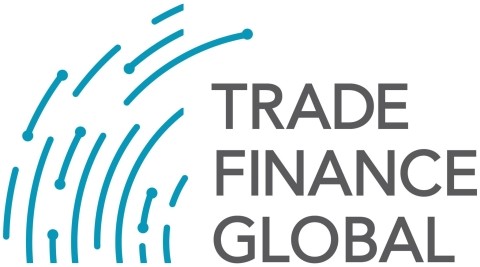
Trade Finance Global (TFG) is the leading trade finance platform. TFG assists companies to access trade and receivables finance facilities through its relationships with 270+ banks, funds and alternative finance houses. TFG’s award winning educational resources serve an audience of 160k+ monthly readers (6.2m+ impressions) in print & digital formats across 187 countries, covering insights, guides, research, magazines, podcasts, tradecasts (webinars) and video.

Established in 2002, Global Trade Review (GTR) is a world-class independent publishing and events company, offering a one-stop shop of news, events and services for companies and individuals involved in global trade.
Legacy Highlights

